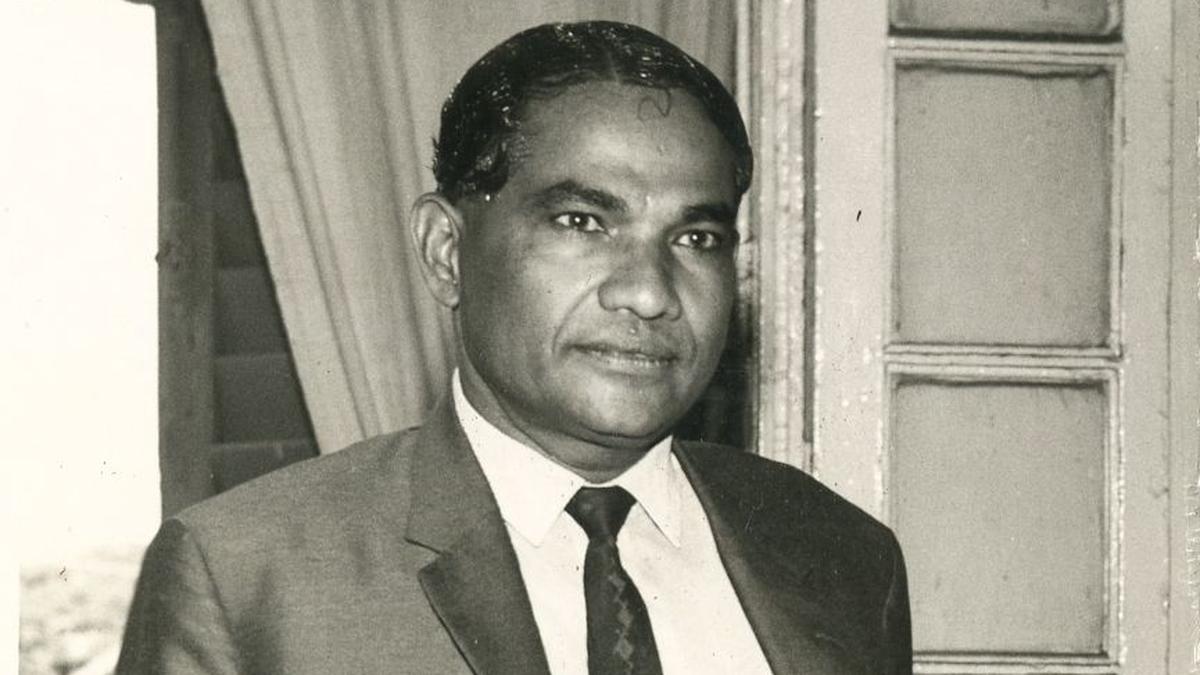
How a misleading electoral forecast in 1971 cost the Chief Secretary his job
The Hindu
How a misleading electoral forecast in 1971 cost the Chief Secretary his job
Electoral forecasts may be misleading sometimes, as in the case of several exit polls for the 2024 Lok Sabha election. The latest episode reminded many of what had happened in Tamil Nadu during the March, 1971 Assembly election. Then, there were no agencies dedicated to making such forecasts and publishing them. But, immediately before the results were declared, talk in political and administrative circles was that the DMK would lose power and former Chief Minister K. Kamaraj, the face of the Congress (Organisation) in Tamil Nadu, would head the government again.
The Congress (O), the Swatantra Party, and the Samyukta Socialist Party constituted one coalition. The ruling DMK, the Congress (Requisitionists or Ruling), the Communist Party of India, the Praja Socialist Party, the Forward Bloc, and the Muslim League constituted the other alliance.
As recalled by the DMK’s former Member of Parliament, R.S. Bharathi, recently in an interview to Tamil television channel Puthiya Thalaimurai, the impact of the talk was such that the then Chief Secretary, E.P. Royappa, who had held the post since November 1969 (nine months after M. Karunanidhi became the Chief Minister), and R.M. Mahadevan, who had been the Inspector-General of Police (the highest rank then) since March 1968, called on Kamaraj to “greet him in advance”, even before the results were out. Incidentally, unlike in 1967, when he was in the fray from the Virudhunagar Assembly constituency, Kamaraj contested from the Nagercoil (now called Kanniyakumari) Lok Sabha constituency and he was re-elected.
Asked what would have made the two top officials to act in this manner, Panruti S. Ramachandran, a DMK MLA then, replies that as Mahadeven had accompanied Royappa, there could have been some inputs from the Police Department’s intelligence wing pointing to the return of the Congress to power.
But the results must have been shocking to Royappa and Mahadevan. The DMK scored a landslide, bagging 184 seats, a record that remains unparalleled for any party in the State. Excluding the Congress (R), which chose not to contest in the Assembly election though it fielded candidates in the Lok Sabha election held simultaneously, the ruling party’s allies won 21 seats. The Congress (O) captured only 15 seats and the Swatantra Party six.
On the night of April 6, Karunanidhi announced the ouster of Royappa from the post of Chief Secretary and made him the Vice-Chairman of the newly established State Planning Commission, which was headed by the Chief Minister himself. P. Sabanayagam, First Member, Board of Revenue, and Chairman of the (now abolished) State Electricity Board, succeeded Royappa as the Chief Secretary.
A week later came another announcement that F.V. Arul, who was the Director of the Central Bureau of Investigation, New Delhi, would succeed Mahadevan, who was transferred as the Director of Vigilance and Anti-Corruption. Arul’s predecessor, who went on leave in May for two months, died of a heart attack at a hospital in Bengaluru on July 11.

After a long, tiring day all we want is to jump right on our cosy beds and rest comfortably on our soft, fluffy pillows, right? Pillows are not quite appreciated as much as electric cars or air-fryers, for instance. Pillows are a wonderful man-made creation that has improved the lives and sleep of people across the globe. Did you know ages ago people used to rest their heads on a HARD ROCK? So how did humans go from sleeping on stones to cosy, fluffy and soft pillows today? Let’s get into the origin of your everyday pillows!

As the November 30 deadline nears for installing vehicle location tracking devices (VLTD) and emergency panic buttons in public service and nationally permitted goods vehicles in Karnataka, transport unions representing cab, bus, and truck operators are urging the government to reconsider the mandate. They argue that the high cost of these devices and a lack of awareness have made it difficult for many vehicle owners to comply with the requirement.









